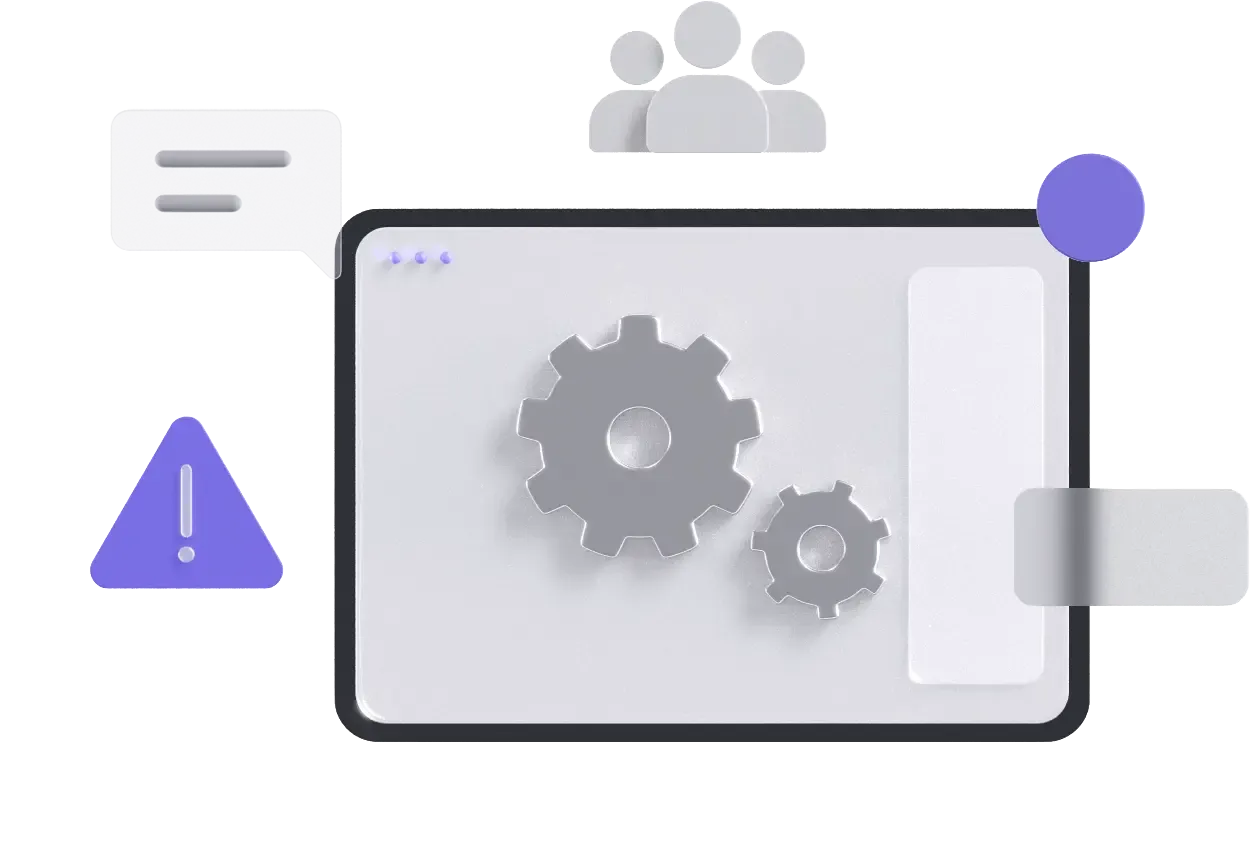Enhance the performance, security, and scalability of your Django projects. From deploying secure Django configurations to scaling your applications against common vulnerabilities, our comprehensive services ensure your web application remains robust and efficient.
Maintain and Secure Your Django Applications
Upkeep Your Django App with Best Practices in Security and Maintenance from 10Clouds.


Best Practices for Django Application Security
Best Practices for Django Application Security
Best Practices for Django Application Security
Secure Your Django App with Expert Strategies
Enhance Your Django Application Performance
Optimize Database Queries and Deploy Efficient Django Settings
Scaling Django Applications for Growth
Strategies for Maintaining and Scaling Your Web Application
Your Guide to Django REST API and Security Considerations
Building Secure and Scalable Django REST APIs
Maintaining Django Applications Against Common Vulnerabilities
Deploying the Best Django Security Practices

Maintain Your Django Project with 10Clouds
Partner with 10Clouds to enhance the security, performance, and scalability of your Django application, and thrive in the digital ecosystem.
GET STARTED NOWFrequently Asked Questions
What is Django, and why is it used for web applications?
Django is a high-level Python web framework that encourages rapid development and clean, pragmatic design. It's used for building secure, scalable web applications quickly and efficiently. Django comes with built-in features for handling common web development tasks, making it a popular choice among developers.
How does maintaining a Django application benefit my business?
Maintaining your Django application ensures it runs smoothly, securely, and efficiently. Regular maintenance helps in identifying and fixing security vulnerabilities, optimizing performance, and adding new features. This not only improves the user experience but also protects your business from potential security threats, contributing to your reputation and trustworthiness.
What are the best practices for Django security?
Best practices for Django security include using Django’s built-in security features, such as middleware for security headers, password management tools, and ORM techniques to prevent SQL injection. It's also crucial to keep your Django application and its dependencies up to date with the latest security patches. Additionally, implementing custom security measures like encryption for sensitive data and deploying additional layers of security can further protect your application.
How can 10Clouds help in scaling my Django application?
10Clouds can assist in scaling your Django application by analyzing your current setup and identifying areas for improvement. We employ database optimizations, efficient caching strategies, and code refactoring to handle increased loads. Our team ensures that your application adheres to Django best practices for scalability, allowing it to grow seamlessly with your business needs.
What does the process of building a Django REST API involve?
Building a Django REST API involves designing your data models, setting up Django REST framework serializers for those models, and creating views to handle API requests. It also includes securing your API endpoints and optimizing query performance for efficiency. 10Clouds provides expertise in each step, ensuring your API is robust, secure, and scalable.
How do I ensure the security of my Django application?
Ensuring the security of your Django application involves multiple steps, including regular security audits, adhering to Django security best practices, and implementing additional security measures like SSL/TLS for data encryption. Partnering with 10Clouds gives you access to expert knowledge and services designed to keep your application secure against evolving threats.
Can 10Clouds help with existing Django applications?
Of course, 10Clouds can help with existing Django applications, whether it's for adding new features, optimizing performance, or enhancing security. Our team can conduct a thorough review of your application, identify areas for improvement, and implement changes that align with your business goals and Django best practices.
How often should a Django application be updated?
A Django application should be updated regularly to incorporate the latest security patches, Django versions, and dependency updates. This not only helps in maintaining security but also ensures that your application takes advantage of the latest features and improvements in the Django framework.





